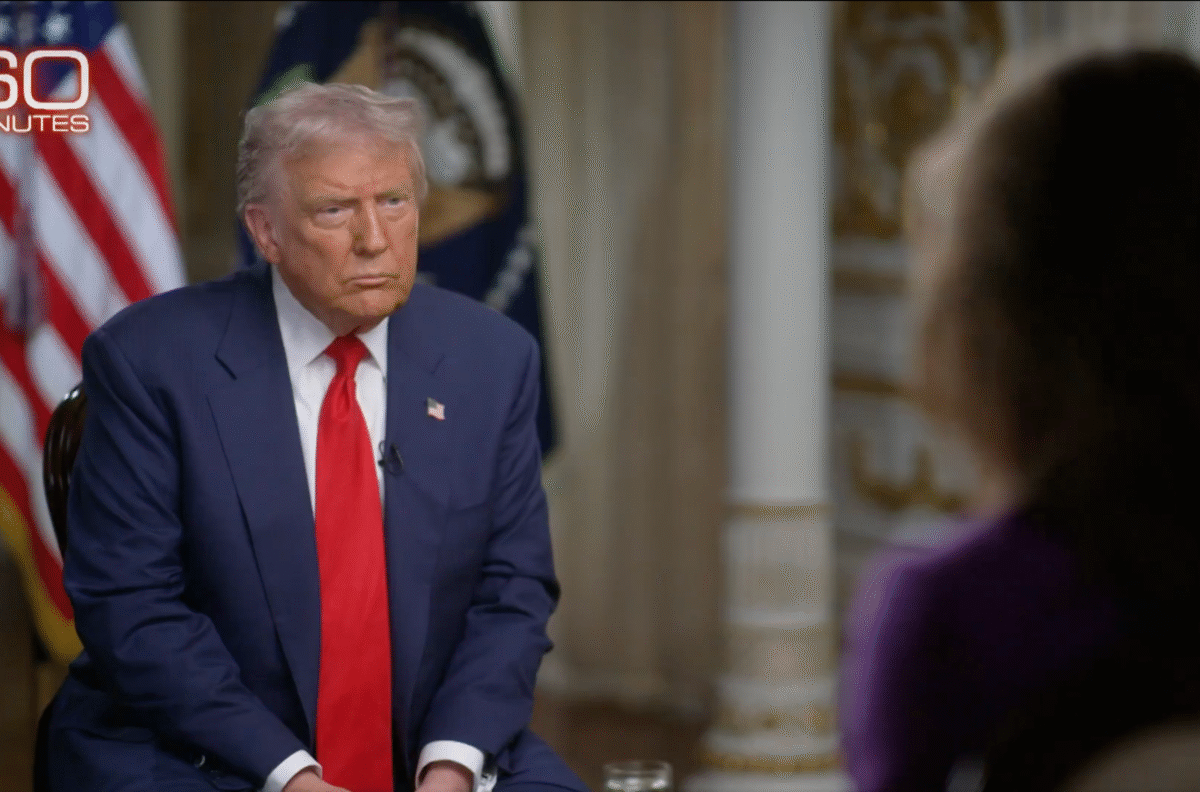Senate breakthrough: How moderate democrats helped end the longest U.S. government shutdown

President Trump at his Mar-a-Lago residence during the televised 60 Minutes interview. Image Source: 60 Minutes/X
After more than a month of gridlock, the U.S. Senate took a critical step on Sunday toward ending the longest government shutdown in American history. The breakthrough came when a small group of moderate Democrats agreed to advance a funding measure without an immediate guarantee of extending health care subsidies—an outcome that sparked tension within their party.
In a pivotal procedural vote, the Senate approved the measure 60-40, moving the government closer to reopening while scheduling a future vote on extending Affordable Care Act (ACA) tax credits set to expire on January 1. Final passage, however, may still take several days, as Democrats opposed to the plan could attempt to delay the process.
Senate Democratic Leader Chuck Schumer of New York opposed the motion, joined by the majority of his caucus, arguing that Americans expect Democrats to continue the fight for health care protections. Only eight Senate Democrats voted with Republicans in the first major break from party lines, highlighting the delicate balance within the chamber.
The vote was largely shaped by three former governors—Senators Jeanne Shaheen and Maggie Hassan of New Hampshire, and Independent Angus King of Maine—who had negotiated behind the scenes for weeks. In their deal, they agreed to advance three bipartisan annual spending bills and extend overall government funding until late January. The arrangement also secures a mid-December vote on ACA tax credits, offering a future path for Democrats to continue pushing their health care priorities.
The plan includes provisions to reverse the mass layoffs of federal employees initiated at the start of the shutdown on October 1. Federal workers who had received reduction-in-force notices will be reinstated and back pay guaranteed. Senate Majority Leader John Thune, a Republican, endorsed the deal and pushed for immediate consideration, citing mounting disruptions across the nation—including flight cancellations, food assistance delays, and unpaid federal employees.
While most Senate Democrats remained opposed, five key Democrats—Tim Kaine of Virginia, Dick Durbin of Illinois, John Fetterman of Pennsylvania, Catherine Cortez Masto and Jacky Rosen of Nevada—joined moderates in voting to advance the agreement. These lawmakers cited the pressing need to alleviate the widespread economic and social impacts of the shutdown.
“The shutdown has hurt everyday Americans, and we can no longer let this continue,” said Senator Tim Kaine. “This deal ensures a vote on ACA subsidies and protects federal workers, giving us a path forward.”
Opposition voices within the Democratic Party were vocal. Senators Bernie Sanders of Vermont and Ruben Gallego of Arizona criticized the agreement for failing to secure immediate relief on health care costs, describing it as a concession that could harm millions. House Democrats also denounced the deal, with Representative Greg Casar calling it a “betrayal” and Representative Angie Craig dismissing it as insufficient.
Meanwhile, the Republican leadership, while hesitant to directly address health care, negotiated behind the scenes with moderates to prevent further economic fallout. The compromise funding measure incorporates appropriations for critical areas, including food assistance, veterans programs, and the legislative branch, while extending other funding until January to allow for more comprehensive negotiations.
The shutdown has created severe disruptions: airlines canceled over 2,000 flights and delayed thousands more, food aid programs like SNAP were delayed, and federal workers faced mounting financial pressure. Food banks reported surging demand, with millions relying on emergency assistance that exceeds typical expectations for the season.
As the Senate moves forward with the compromise, the ultimate reopening of the government still hinges on the House of Representatives’ approval. House Speaker Mike Johnson will need to recall members to Washington to vote on the measure before it can be signed into law.
The deal represents a fragile yet significant step toward resolving a shutdown that has affected millions of Americans, balancing short-term relief with ongoing battles over health care policy.
FAQ
Q1: What triggered the government shutdown?
A1: The shutdown began over disagreements between Democrats and Republicans on funding levels and the extension of Affordable Care Act subsidies.
Q2: Who helped break the Senate stalemate?
A2: Senators Jeanne Shaheen, Maggie Hassan, and Independent Angus King played pivotal roles in advancing the compromise.
Q3: Will health care subsidies be extended?
A3: The current deal does not guarantee immediate extension but schedules a vote on ACA tax credits for mid-December.
Q4: How does the deal affect federal workers?
A4: Federal employees who were laid off will be reinstated, and all will receive back pay.
Q5: What impact has the shutdown had on the public?
A5: Flight disruptions, delayed food aid, and unpaid federal workers have been major consequences of the shutdown.

